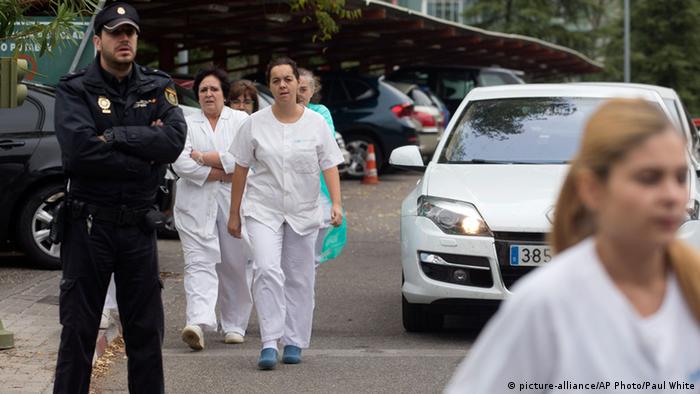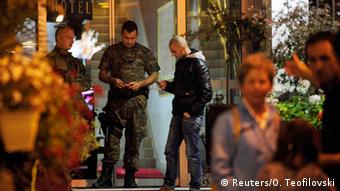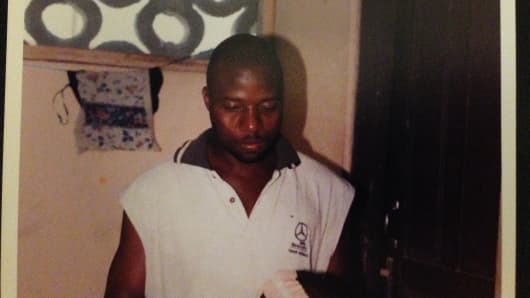Posted 7:18 pm, October 13, 2014,
by Alix Bryan and Melissa Hipolit, Updated at 08:04pm, October 13, 2014
RICHMOND, Va. — A local clinic has isolated a patient who recently traveled to Africa and now has a low-grade fever.
CrossOver Health Ministry, located in the 100 block of Cowardin Avenue, said they “don’t believe it’s Ebola,” but have isolated the patient and are taking necessary precautions to evaluate any risk.
The patient traveled to Liberia, a country of concern in the rapid transmission of Ebola, a couple of weeks ago. The facility has been in touch with the Virginia Department of Health. The Richmond Health Department is coordinating care for the patient. CBS 6 has an interview with them at 8:30 p.m.
 The ministry feels the isolated patient is a very low risk, and said
that the patient has other symptoms that aren’t typical with Ebola.
The ministry feels the isolated patient is a very low risk, and said
that the patient has other symptoms that aren’t typical with Ebola.
This facility serves a very large international population.
“We are as prepared as we can be,” said Julie Bilodeau, executive director at CrossOver Ministry.
Thomas Eric Duncan, the first person diagnosed with Ebola in the
United States, died 10 days after he was admitted to Dallas’ Texas
Health Presbyterian Hospital.
His family wonders whether the outcome would have been different if doctors had admitted Duncan to a hospital on September 25, the first time he showed up with a fever and stomach pain. He was turned away.
Duncan’s family has criticized the care he received. The Dallas hospital that treated him says staff members did everything they could.
The number of deaths attributed to the current Ebola outbreak, in West Africa, has climbed to 4,033, the World Health Organization reported Friday. The tally brings the total number of confirmed, probable and suspected cases of Ebola to 8,399. The numbers were reported from Guinea, Liberia, Nigeria, Senegal, Sierra Leone, Spain and the United States.
CBS 6 Reporter Melissa Hipolit will have a complete report on this local breaking news, for the 11 p.m. broadcast. This is a developing story.
http://wtkr.com/2014/10/13/richmond-clinic-isolates-patient-to-evaluate-possible-ebola-risk/
CrossOver Health Ministry, located in the 100 block of Cowardin Avenue, said they “don’t believe it’s Ebola,” but have isolated the patient and are taking necessary precautions to evaluate any risk.
The patient traveled to Liberia, a country of concern in the rapid transmission of Ebola, a couple of weeks ago. The facility has been in touch with the Virginia Department of Health. The Richmond Health Department is coordinating care for the patient. CBS 6 has an interview with them at 8:30 p.m.

The sign outside the door warns of Ebola. A picture that was taken down, earlier read “Clinic Closed For Emergency.”
The Richmond Health Dept. is coordinating care for the CrossOver patient. We're supposed to get an update @ 8:30. @CBS6 #RVA
— Melissa J. Hipolit (@MelissaCBS6) October 13, 2014
This facility serves a very large international population.
“We are as prepared as we can be,” said Julie Bilodeau, executive director at CrossOver Ministry.
A healthcare ministry in #RVA is considering testing a patient for #Ebola. Patient recently traveled to Liberia and has a fever. @CBS6
— Melissa J. Hipolit (@MelissaCBS6) October 13, 2014
His family wonders whether the outcome would have been different if doctors had admitted Duncan to a hospital on September 25, the first time he showed up with a fever and stomach pain. He was turned away.
Duncan’s family has criticized the care he received. The Dallas hospital that treated him says staff members did everything they could.
The number of deaths attributed to the current Ebola outbreak, in West Africa, has climbed to 4,033, the World Health Organization reported Friday. The tally brings the total number of confirmed, probable and suspected cases of Ebola to 8,399. The numbers were reported from Guinea, Liberia, Nigeria, Senegal, Sierra Leone, Spain and the United States.
CBS 6 Reporter Melissa Hipolit will have a complete report on this local breaking news, for the 11 p.m. broadcast. This is a developing story.
http://wtkr.com/2014/10/13/richmond-clinic-isolates-patient-to-evaluate-possible-ebola-risk/









 TRANSLATE
TRANSLATE




